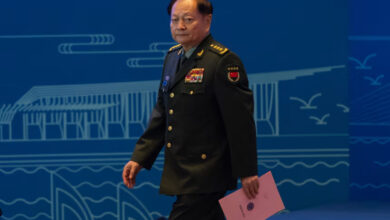Freedom of information (FOI) is not yet a basic right Egypt. But that could soon change with the writing of a new constitution and passage of an FOI law. In making FOI a right, Egypt will be one step closer to tackling corruption, experts say.
Aware of stories and experiences from around the world that tell of the centrality of information and transparency in ending corruption, a group of human rights defenders, academics and media professionals came together after the revolution in Egypt to draft an FOI law.
Amr Gharbeia, civil liberties director at the Egyptian Initiative for Personal Rights (EIPR), is part of the working group putting the final touches to the draft FOI law.
“We’ve been working on enshrining FOI as a legal right written into the constitution, and creating a mechanism that not only requires public bodies to release data automatically, but also to contest FOI requests that are declined. This would be done through a new legal animal, called an ombudsman or information commissioner, which acts as an independent body and is hired by, fired by and reports to the parliament,” Gharbeia says.
The commissioner will be responsible for deciding what information it is in the public interest to release, and what is not — based on exceptions also written into the law, such as the privacy of a third party or national security. “Exceptions to FOI should only be in the law and not left to an executive person to decide upon. The commissioner will be a point of arbitration, whose measure is public good and making sure the government’s bureaucracy serves the people.”
Gharbeia adds: “In other countries, one of the main benefits of the FOI law is its massive positive impact in ending corruption. The majority of FOI requests are related to municipalities and the service-providing part of government.”
Currently, a lot of information related to Egypt’s public bodies is not automatically released. The Central Auditing Authority, for example, which is responsible for auditing public sector institutions, does not make its reports public and there is no mechanism to ensure various bodies' effectiveness of budget execution. The Central Agency for Public Mobilization and Statistics (CAPMAS), which issues statistics related to poverty and unemployment in Egypt, also withholds many of its reports.
Amr Adly, EIPR’s economic and social justice director, explains that this "dates back to the 1950s when Egypt’s laws were given a strong militaristic framework creating many provisions that limit access to information."
As the practice of FOI establishes itself in Egypt, the military and other security sector institutions, such as the intelligence services, will also have to make information related to their budgets public.
Examples from Kenya, Georgia, India and the UK also show that the fight against corruption — by making budgets and bribes public — is an ongoing process and not without flaws.
Michela Wrong, author of "It’s Our Turn to Eat: The Story of a Kenyan Whistleblower," says “military and security contracts are a favourite method for practicing corruption. The argument used is that it’s all top secret, a question of national security, so people are not allowed to know the details of the contracts. It’s a wonderful camouflage. Military and security procurement is where all the dodgiest contracts are to be found.”
Georgia has its own experience of this.
Between 1992 and 2003, under the regime of Eduard Shevardnadze, Georgia was known as one of the most corrupt countries in the world with high rates of poverty and crime. Things changed from November 2003 when Shevardnadze’s government was ousted following mass demonstrations over the conduct of parliamentary elections. A new government was employed and the fight against corruption began.
One aspect was the military. Mark Mullen, board member at Transparency International Georgia, explains: “The Georgian military didn’t own a big portion of the economy as in Egypt. Nevertheless, local NGOs used international organizations to push for greater transparency in military budgets, mainly because of the corruption risk of military procurement.”
He adds: “Georgia was trying to get closer to NATO so NGOs met with them to report on this lack of transparency and urged them to press the government in opening up the military budget, since they had influence with the government. Eventually, there was some success.”
After 2003, there was also an increase in legislated transparency and strong FOI laws. “It became easy overnight for anyone to request information from any ministry. This proved effective to help people understand where problems were in government bodies and how money moved around,” Mullen says.
The police was another target of anti-corruption efforts, although some methods Georgia employed were illegal. Illegal acts to end police corruption included putting listening devices in police cars — those soliciting bribes were put on television and then thrown into jail. “Much of this was against the law, but it was effective and popular. This did however cause problems later on, such as issues related to independence of the judiciary. In hindsight, they should have been clearer with themselves about when and how the government would start obeying the law,” Mullen said.
To tackle administrative corruption, Georgia went through every licensing body in the government asking them to defend why they need to exist. Most didn’t, and in this way, the size of the government was cut down by 80 percent over a year, according to Mullen.
The process is not complete however. There are still problems of collusion in high-level business deals, not through kickbacks, but a closed system of individuals and government members favoring friends for contracts. This is due to the fact that cracking down on corruption by giving government bodies a strong mandate was seen as more important than establishing a strong democracy.
In Kenya, the constitution has recently been radically rewritten to decentralize power, giving more local control over the national budget. “Kenyans felt that the growing centralization of power in the capital and State House [the president’s residence] lay at the root of the problem,” Wrong says.
Before they rewrote the constitution, Kenyans set up a constituency development fund, allowing voters to know how much money was being allocated and spent at constituency level. If the MP has a known budget and there’s nothing to show for it — no local roads, hospitals, or schools — then voters know who to complain to and hold accountable.
“The Kenyans have launched a massive experiment in decentralization. They have opted for a new way of running their country, an attempt to deal with the ethnic hatred that has been created by decades of corruption. It may end up being a failure, but this is the method they have decided to try,” Wrong adds.
The success of this process has yet to be tested, but Wrong argues that Kenya is a case study on how corruption can tear a seemingly stable country apart by creating hostility between those who benefit and those who come to understand just how thoroughly they are being excluded. In Kenya, these exclusions are based on ethnic identities.
John Githongo, the Kenyan anti-corruption czar turned-whistleblower, believes in the bottom-up approach. “It’s about creating a climate in which people say this is simply unacceptable and creating a sense of shame at certain behavior,” Wrong says.
Essential to the anti-corruption process also is being able to quantify and measure how many people are paying bribes and through which departments and ministries. India, for example, set up a website called ‘I paid a bribe’, where you can register, anonymously, that you bribed a public official for a service you should have got for free. This gives journalists and others the tools for public questioning. “Humiliation is a very effective tool,” Wrong believes.
Service such as Wikileaks, in which documents can be leaked anonymously to expose corruption, and citizen radios with DJs who have an agenda to alert people about what is going on, informing them of their rights and encouraging them to get angry about certain things, are also tools that have been used effectively in sub-Saharan Africa and elsewhere.




